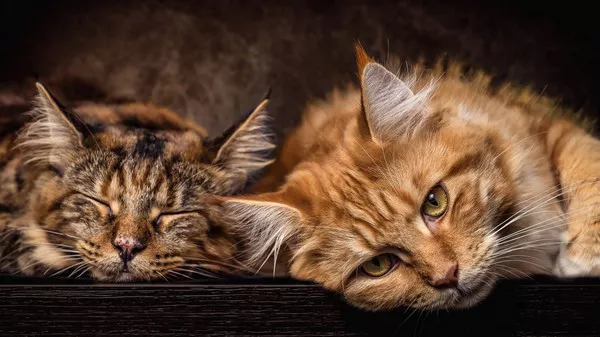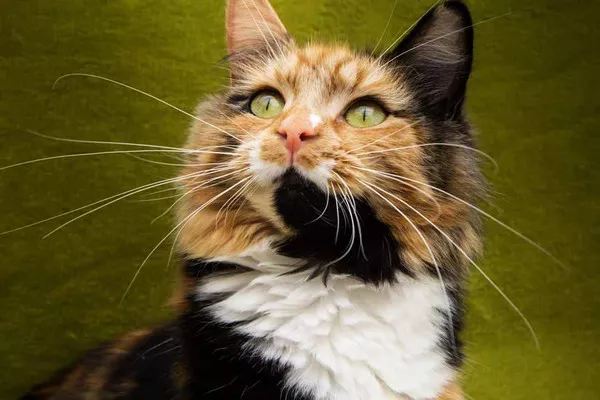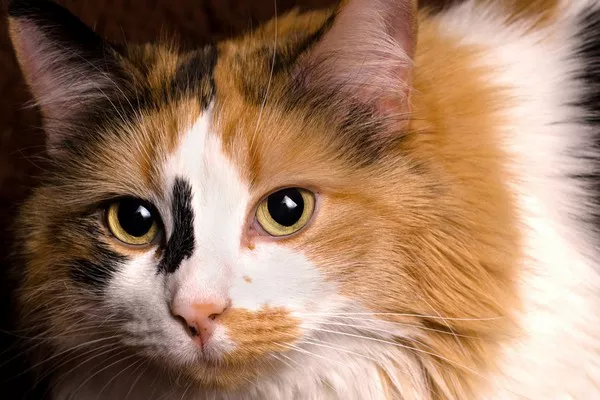Welcoming a Maine Coon kitten into your home is an exciting and rewarding experience. As you embark on the journey of caring for your new feline friend, one of the key considerations is their nutrition. Maine Coon kittens, known for their large size, majestic appearance, and playful nature, require a balanced and appropriate diet to support their growth and development. In this article, we will explore the benefits of wet food for Maine Coon kittens, factors influencing their dietary needs, and guidelines on how much wet food to feed your Maine Coon kitten for optimal health and well-being.
Understanding the Maine Coon Kitten’s Unique Dietary Needs
Rapid Growth and Development: Maine Coon kittens are recognized for their rapid growth and development. As one of the largest domestic cat breeds, they experience significant changes in size, weight, and muscle mass during their early months. A nutrient-rich diet is essential to support their overall health and the development of strong bones, muscles, and organs.
Energy Requirements: Maine Coon kittens are energetic and playful, requiring a diet that meets their increased energy needs. The right balance of proteins, fats, and carbohydrates ensures they have the energy to fuel their active play and exploration. Adequate nutrition is crucial for maintaining their vitality and promoting a healthy lifestyle.
Nutrient Density: The nutrient density of a kitten’s diet is vital for meeting their specific nutritional requirements. Essential nutrients, including protein, vitamins, and minerals, play a crucial role in supporting the growth of tissues, organs, and a strong immune system. Maine Coon kittens benefit from a diet that is not only balanced but also dense in essential nutrients.
Benefits of Wet Food for Maine Coon Kittens
Hydration Support: Wet cat food has a higher moisture content compared to dry kibble. This additional moisture is beneficial in promoting hydration, especially in kittens who may not drink enough water independently. Adequate hydration is vital for overall health, kidney function, and preventing urinary tract issues.
Palatability and Enjoyment: Maine Coon kittens, known for their discerning palates, often find wet food more palatable and enjoyable. The enticing aroma and texture of wet food can encourage even the pickiest eaters to consume their meals enthusiastically. Ensuring that your kitten enjoys their food promotes a positive relationship with mealtime.
Dental Health: While wet food alone may not provide the same dental benefits as dry kibble, it can still contribute to oral health. The moisture content in wet food may help reduce the risk of dental issues, and incorporating a combination of wet and dry food or incorporating dental treats can address this aspect of your Maine Coon kitten’s health.
Nutrient Absorption: The consistency of wet food allows for easy nutrient absorption. Maine Coon kittens can efficiently digest and absorb the essential nutrients present in wet food, supporting their growth and development. The increased bioavailability of nutrients contributes to overall well-being.
Factors Influencing Feeding Guidelines
Age and Growth Stage: The age and growth stage of your Maine Coon kitten significantly influence their dietary requirements. Younger kittens require more frequent feeding and a diet higher in calories to support their rapid growth. As they mature, the frequency and quantity of meals may be adjusted to align with their changing needs.
Weight and Body Condition: Monitoring your Maine Coon kitten’s weight and body condition is essential in determining the appropriate amount of food. Kittens should have a gradual and steady growth curve, and adjustments to their food intake may be necessary to maintain an optimal weight. Regular veterinary check-ups can help assess their body condition accurately.
Health Considerations: Individual health considerations, such as any pre-existing health conditions or sensitivities, should be taken into account when determining your Maine Coon kitten’s diet. Some kittens may have specific dietary requirements or restrictions that require a customized feeding plan.
Activity Level: The activity level of your Maine Coon kitten plays a role in their calorie needs. Highly active kittens may require more calories to sustain their energy levels, while less active kittens may need adjustments to prevent excessive weight gain. Observing your kitten’s play and activity habits helps tailor their diet accordingly.
Guidelines on How Much Wet Food to Feed Maine Coon Kittens
1. Age-Specific Feeding Schedule:
2 to 3 Months: Maine Coon kittens at this age typically require frequent feeding, ideally four to five meals a day. The small stomach capacity and high energy needs necessitate more frequent meals to ensure they receive sufficient nutrition for growth.
4 to 6 Months: As your Maine Coon kitten grows, you can gradually reduce the frequency of meals to three or four times a day. At this stage, their digestive system is more developed, allowing for larger but still portion-controlled meals.
6 to 12 Months: By the time your Maine Coon kitten reaches six months, you can transition to a feeding schedule of three meals per day. This schedule continues to provide adequate nutrition while accommodating their evolving dietary needs.
2. Portion Control:
Kitten-Specific Portion Sizes: The recommended portion size for Maine Coon kittens varies depending on factors such as age, weight, and activity level. Generally, a portion size of about 1/2 to 3/4 cup of wet food per meal is suitable for kittens, divided according to their age-specific feeding schedule.
Consulting Veterinary Guidance: To determine the precise portion sizes that best meet your Maine Coon kitten’s individual needs, consult with your veterinarian. They can provide personalized guidance based on your kitten’s weight, growth trajectory, and overall health.
3. Monitoring Body Condition:
Visual and Tactile Assessment: Regularly monitor your Maine Coon kitten’s body condition by observing their overall appearance and feeling for the presence of excess fat or prominent bones. A healthy kitten should have a sleek and well-proportioned body.
Veterinary Input: If you notice any changes in your Maine Coon kitten’s body condition, consult with your veterinarian. They can assess whether adjustments to the feeding plan are necessary to maintain an ideal weight and overall health.
4. Transitioning to Adult Food:
Gradual Transition: As your Maine Coon kitten approaches their first birthday, consider transitioning them to an adult cat food formula. A gradual transition over a week or two helps their digestive system adapt to the new food, ensuring a smooth changeover.
Consulting with the Vet: Seek guidance from your veterinarian when making the transition to adult food. They can recommend an appropriate adult cat food formula that aligns with your Maine Coon’s nutritional needs.
Conclusion
Feeding your Maine Coon kitten a balanced and appropriate diet is a crucial aspect of their overall care and well-being. The decision to provide wet food offers numerous benefits, including hydration support, palatability, and nutrient absorption. As you navigate the feeding guidelines, consider the age, weight, and activity level of your kitten, adjusting their diet accordingly. Regular veterinary check-ups and open communication with your veterinarian ensure that your Maine Coon kitten receives the personalized care and nutrition they need to thrive. By embracing a thoughtful and informed approach to feeding, you set the foundation for a healthy and happy life for your Maine Coon companion.


























